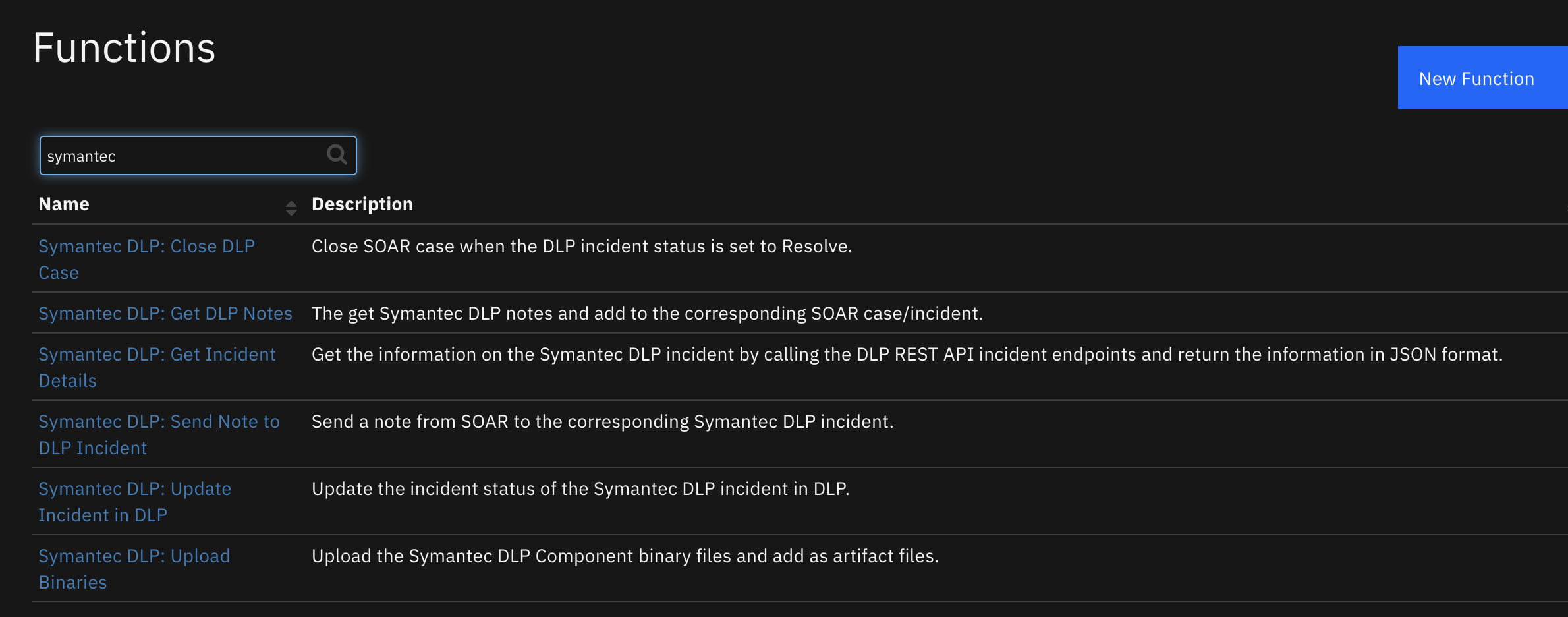Shodan¶
Release Notes¶
Version |
Date |
Notes |
|---|---|---|
2.0.1 |
03/2025 |
Converted example workflows to python3 |
2.0.0 |
09/2020 |
Added support for App Host, Changed message destination from |
Added proxy support. Added the configs `http_proxy` and `https_proxy`, Added example Rule: `Example: Shodan Host Lookup`, Added example Workflow: `example_shodan_host_lookup`|
| 1.0.0 | 12/2018 | Initial Release |
Overview¶
A function to lookup IP Addresses in Shodan

This is a simple function which takes IP Address artifacts and returns the results from https://www.shodan.io/.
It will update the description of the artifact and add a note to the incident with the Vulnerabilities, Ports and more from Shodan.
You will need an API key for Shodan - https://developer.shodan.io/billing/signup
Requirements¶
Resilient platform >=
v35.0.0An Integration Server running
resilient_circuits>=51.0.0To set up an Integration Server see: ibm.biz/res-int-server-guide
If using API Keys, minimum required permissions are:
Org Data: Read, Edit
Function: Read
Installation (App Host)¶
With App Host, all the run-time components are pre-built. Perform the following steps to install and configure:
Download the
app-fn_shodan-x.x.x.zip.In Resilient navigate to Adiminstrator Settings > Apps
Click the Install button and select the downloaded
app-fn_shodan-x.x.x.zip. This will install the associated customizations.Once installed, navigate to the app’s Configuration tab and edit the app.config file updating the
[resilient]section as necessary and updating the[fn_shodan]section as necessary.
Installation (Integration Server)¶
Download the
app-fn_shodan-x.x.x.zip.Copy the
.zipto your Integration Server and SSH into it.Unzip the package:
$ unzip app-fn_shodan-x.x.x.zip
Install the package:
$ pip install fn_shodan-x.x.x.tar.gz
Import the configurations into your app.config file:
$ resilient-circuits config -u -l fn-shodan
Import the fn_shodan customizations into the Resilient platform:
$ resilient-circuits customize -y -l fn-shodan
Open the config file, scroll to the bottom and edit your fn_shodan configurations:
$ nano ~/.resilient/app.config
Config
Required
Example
Description
shodan_apikey
Yes
xxxxxxxxxxxxxxxxxxYour Shodan API Key
http_proxy
No
http://127.0.0.1:3000Your HTTP Proxy
https_proxy
No
https://127.0.0.1:3000Your HTTPS Proxy
Save and Close the app.config file.
[Optional]: Run selftest to test the Integration you configured:
$ resilient-circuits selftest -l fn-shodan
Run resilient-circuits or restart the Service on Windows/Linux:
$ resilient-circuits run
Uninstall¶
SSH into your Integration Server.
Uninstall the package:
$ pip uninstall fn-shodan
Open the config file, scroll to the [fn_shodan] section and remove the section or prefix
#to comment out the section.Save and Close the app.config file.
Troubleshooting¶
There are several ways to verify the successful operation of a function.
Resilient Action Status¶
When viewing an incident, use the Actions menu to view Action Status.
By default, pending and errors are displayed.
Modify the filter for actions to also show Completed actions.
Clicking on an action displays additional information on the progress made or what error occurred.
Resilient Scripting Log¶
A separate log file is available to review scripting errors.
This is useful when issues occur in the pre-processing or post-processing scripts.
The default location for this log file is:
/var/log/resilient-scripting/resilient-scripting.log.
Resilient Logs¶
By default, Resilient logs are retained at
/usr/share/co3/logs.The
client.logmay contain additional information regarding the execution of functions.
Resilient-Circuits¶
The log is controlled in the
.resilient/app.configfile under the section [resilient] and the propertylogdir.The default file name is
app.log.Each function will create progress information.
Failures will show up as errors and may contain python trace statements.
Support¶
Name |
Version |
Author |
Support URL |
|---|---|---|---|
fn_shodan |
2.0.0 |
Resilient Labs |
https://ibm.biz/resilientcommunity |